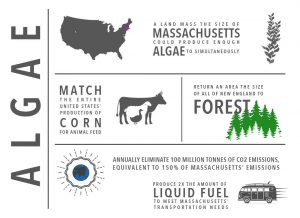A new study has found that consumers are willing to pay more for second generation biofuels, in fact up to an 11 percent premium over conventional fuel. The research, “Consumer Preferences for Second-Generation Bioethanol,” was conducted by Washington State University (WSU) and published in the November issue of the journal of Energy Economics.
 “We were surprised the premium was that significant,” said Jill McCluskey, WSU professor in the School of Economic Sciences. “We wanted to study people in different regions of the country, to make sure we weren’t just getting a local result, and people in all three cities we studied said they would pay more for these fuels.”
“We were surprised the premium was that significant,” said Jill McCluskey, WSU professor in the School of Economic Sciences. “We wanted to study people in different regions of the country, to make sure we weren’t just getting a local result, and people in all three cities we studied said they would pay more for these fuels.”
The study was in part funded from a grant from the National Science Foundation overseen by WSU professor Shulin Chen, who is housed in the Department of Biological Systems Engineering. Chen researches biofuels and reached out to McCluskey to learn whether people would buy next generation biofuels. Sustainable biofuels have been in the news in the region of late with several airlines, such as Alaska Airlines, flying with aviation biofuels.
“This new biofuel doesn’t exist commercially yet, so we have to do these studies to make sure there’s a potential market for it,” McCluskey said. “And this shows there clearly is a market.”
The team conducted surveys in three markets with Portland, Oregon drivers saying they would pay up to 17 percent more for second gen biofuels, consumers in Minneapolis, Minnesota said they would pay a 9 percent premium and participants in Boston said they would pay up to an 8 percent premium.
“People in the survey were concerned that the new fuel may put their car at risk, by not running the same as conventional fuel,” McCluskey added. “But they also saw the added benefit to the environment.”
The researchers asked participants if they would be willing to pay a certain amount for the product. If they said no, researchers offered a discount and asked if participants would pay that amount. However, if respondents said yes, researchers asked if they would be willing to pay a little more for the product. Before they were surveyed, half of the participants were given information about second generation biofuels. Those participants were more willing to pay a greater premium, which suggests that marketing the benefits of the new biofuels would improve consumers’ perceptions, McCluskey said.









